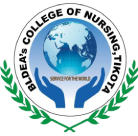Home > Academics > Departments
Child Health Nursing
The Department of Child Health Nursing has evolved from an entry level position to a distinct specialty. It is no longer viewed as a stepping-stone, but is the solid rock and the backbone of every institution. Students in this section receive training in how to handle children with tact and delicacy. Here, students receive the preparation they need to comprehend and acquire the abilities needed to care for children up to the age of 14. This department's primary competencies are in the areas of preventive, curative, and rehabilitative care. The clinical experience that students gain in the teaching hospital's Neonatal ICU, Paediatric ICU, and General Paediatric wards is extremely beneficial to them.
Child Health Nursing is a specialized field of nursing focused on the physical, emotional, and developmental health of children from birth through adolescence. It involves providing comprehensive care to children in various settings, including hospitals, clinics, schools, and community health environments. Child health nursing encompasses care for infants, toddlers, children, and adolescents, addressing their unique health needs at different developmental stages.
Nurses work in diverse environments, including pediatric hospitals, primary care clinics, schools, community health centers, and home health settings. Conduct thorough assessments to monitor growth, development, and overall health. This includes physical exams, developmental screenings, and health history reviews. Implement and promote preventive measures such as vaccinations, health education, and injury prevention strategies to protect children from illnesses and accidents.
Provide care for both acute conditions (e.g., infections, injuries) and chronic illnesses (e.g., asthma, diabetes), including administering medications, treatments, and coordinating care. Educate and support families and caregivers on child health issues, including nutrition, hygiene, developmental milestones, and managing specific health conditions.
Vision
To lead the way in pediatric nursing practice, research, and teaching in order to enhance the health of the pediatric population both locally and worldwide.
Objectives
Regularly assess and track physical, cognitive, and emotional development to ensure children are meeting expected milestones.
Offer guidance to parents and caregivers on age-appropriate activities and developmental expectations to support optimal growth.
Ensure children receive recommended vaccinations to protect against communicable diseases.
Educate parents and caregivers on safety practices to prevent accidents and injuries at home, school, and in the community.
Conduct regular health screenings and physical examinations to identify any potential health issues early.
Gather and review comprehensive health histories to inform care and address any concerns.
Provide immediate care for illnesses and injuries, such as infections, respiratory issues, and minor injuries.
Support families in managing chronic conditions like asthma, diabetes, and epilepsy through education, monitoring, and coordination of care.
Offer education on child health topics, including nutrition, hygiene, and disease prevention.
Provide support and advice to parents and caregivers on child-rearing practices, including discipline, sleep routines, and behavioral issues.
Our department has unique student evaluation methods like
OSPE
OSCE
Self assessment method, which will create more interest among students in learning and improving their skills.
Faculty Members
| Sl no | Name of the faculty | Designation | Photo |
| 1. | Mr. Prashant Ishwar | Lecturer and HOD |  |

